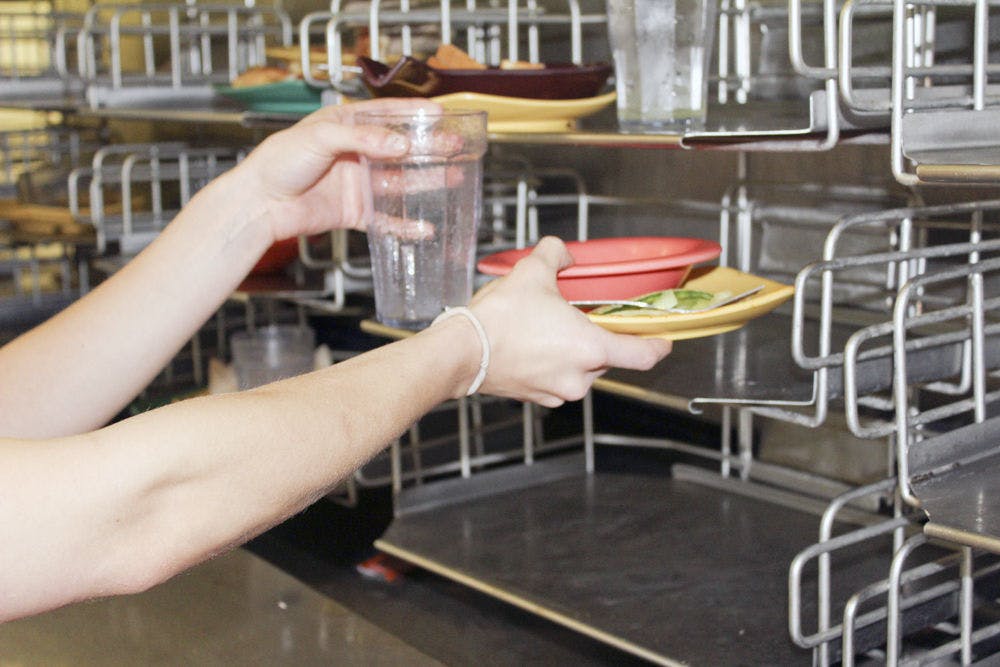Twenty-two million pounds: That’s the weight of about 1,100 average-sized elephants, 515 full school buses or 71 average houses.
It’s also the amount of uneaten food college campuses collectively throw out each year, according to the Food Recovery Network.
Colleges around the country have increased efforts to combat food waste recently, and UF is no exception.
UF initiatives include trayless dining at select locations, a reusable cup, mug and to-go container program, compostable utensils, coffee ground and lemon rind composting, recycling and a food-waste tracking system.
David Frank, Gator Dining Services sustainability manager, wrote in an email that food products are tracked from the moment they enter the facility to when they are eaten or thrown away to reduce waste at the source.
“This process allows us to further analyze and understand sources of surplus and areas of intervention to reduce organic waste,” Frank wrote.
Gator Dining has composted about 267 tons of food waste since March 2014, he said. They compost pre- and post-consumer food waste at Gator Corner Dining Center and the Fresh Food Company and pre-consumer food waste at the Reitz Union.
Frank said Gator Dining Services is working with the university’s waste hauler, Waste Corporation of America, and the university to implement the composting program at other locations such as the Racquet Club, Sun Terrace and the Hub.
“Here at Gator Dining, we are always striving with each and every program we implement to minimize the impact of our services to the university, the community and the environment,” he said.
Jillian Samowitz, a UF sustainability studies freshman, said she thinks these methods are effective because they bring a new sense of awareness.
“Providing these alternatives in a public setting like the dining halls shows students that there are options,” Samowitz, 19, said.
Wynn Calder, co-director of the Association of University Leaders for a Sustainable Future, said the focus on food sustainability has gotten stronger in the past 10 years.
Calder said the key to reducing campus food waste is redesigning the dining halls. By implementing trayless dining, students take less food because they can only hold so much on a plate, he said.
“Most of us are profoundly ignorant about the complexities of the food system,” he said, “and it’s scary.”
Pictured is a student placing waste on the conveyer belt in the Broward Dining Center.






